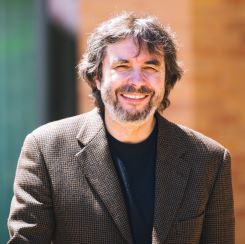
Christmas, a season characterized by its festive spirit, joyous decorations, seasonal concerts, and culinary delights, stands as the undisputed favorite time of the year for many. The popular narrative of Christmas often aligns with our intuitive understanding, but it prompts a reflection on how closely this secular celebration mirrors the Church’s perspective.
Contemporary voices, such as bloggers and influencers, suggest that the Christmas season kicks off either with the frenzy of “Black Friday,” following Thanksgiving, or even as early as Halloween. Amidst of the jubilant atmosphere that engulfs December, concerns about these expanded season boundaries not aligning with the Church calendar may be overlooked. However, if we rush so quickly to Christmas, what of the Liturgical Season of Advent? In the quest for extended Christmas festivities, is Advent, the shortest liturgical season, merely an inconvenient pause on the road to holiday revelry? What, then, is the significance of Advent, and why should it stand apart from other seasons?
The term “advent” derives from the Latin “adventus,” meaning “coming.” The liturgical Season of Advent consists of four weeks of preparation leading up to Christmas. Recognizing that elaborate Christmas programs necessitate considerable preparation, time, and effort, we find ourselves engrossed in activities such as adorning twinkling lights, decorating trees, building a gingerbread house, writing a letter to the reindeer, fixing mistletoes in the front door, going Christmas shopping, reading Christmas stories, watching Christmas movies, going to Christmas concerts and parties, and engaging into dozens of similar activities to make sure that we get into the right “Christmas mood.”
Yet, the Church invites us to prepare for the Lord’s coming in a deeper way. Why does the Church dedicate a distinct season to the preparation process? Saint Bernard eloquently unveils the threefold mystery of Advent: “In the first coming He comes in the flesh and in weakness; in the second, he comes in spirit and in power; in the third, He comes in glory and in majesty,” Said differently, the first coming of Christ is marked by the humble Nativity. His second coming is experienced by the spiritual reception of Christ through prayer, reconciliation, and participation in Eucharistic liturgy and other sacraments of the Church. The third and final advent of Christ will be marked, Bernard teaches, by a glorious return accompanied by cosmic upheaval as described by Isaiah:
the sun will grow dark,
and the moon will not give its light.
The stars will fall from the sky.
and the powers of the heavens will be shaken. (Isaiah 13:10; 34:4)
How, then, do we prepare for this ultimate coming? Saint Bernard’s Fifth Sermon for Advent underscores that “the second coming is the means whereby we pass from the first to the third.” It revolves around opening our hearts to the Lord and creating a sacred space for Him. Much like Mary and Joseph faced closed doors during their journey, the question for us becomes: are we willing to accept Jesus into our hearts today, unconditionally submit to Him, and relinquish all defenses?
Jesus emphasizes individual readiness as a crucial step for salvation.
In the Gospel for the First Sunday of Advent, Jesus urges the disciples to be watchful and alert, for they do not know “when the Lord of the house is coming,” and concludes with a warning, “may he not come suddenly and find you sleeping” (Mark 13:36). A very similar message is conveyed in Jesus’ parable about 10 bridesmaids waiting with lamps for the groom. Those who were unprepared had to go to purchase oil and were absent when he came. When they returned that found the door to the wedding banquet shut. Yet another parable tells of an owner unexpectedly returning to the field, some laborers will be taken by the Lord, others will be left (Matthew 24:36-41). Jesus also teaches of the necessity of being prepared for the Lord’s coming through a parable describing a man attending a wedding reception being thrown out once the king noticed that he did not have the proper attire (Matthew 22:11-13).
The scripture says: “For everything there is a season” (Ecclesiates 3: 1). Advent is the season for the spiritual work necessary to prepare space for the Lord within our hearts, so that he recognizes each of us as his own. Let us aspire to celebrate Christmas fully reconciled with God and those around us, embodying genuine love and peace for all. May we be ready to welcome the Lord and observe Christmas with hearts open and spirits attuned to the essence of the season.

Andrzej Zahorski is Director of Music at St. Anselm Parish in St. Louis, MO. He holds a doctorate of musical arts from Stanford University.